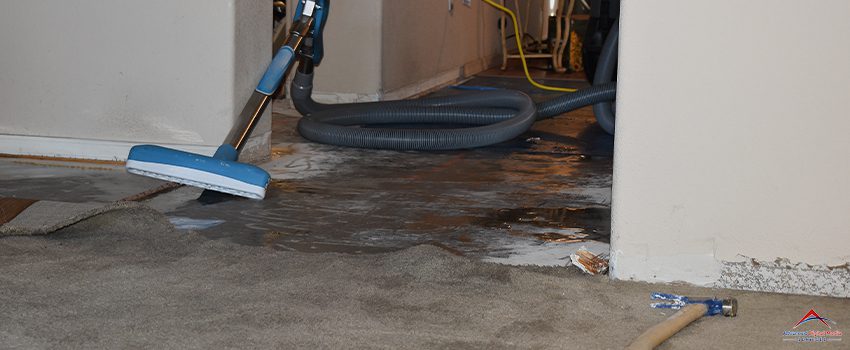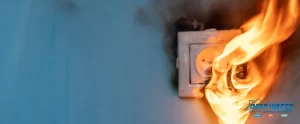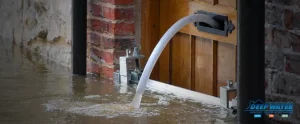Winter can be picturesque; the silence that fills the world makes it seem like everything is preparing to restart. However, the reality can be so un-romantic. Winter is cold and freezes everything – including the plumbing system.
Winter water damage is common, especially in rural areas where uniform insulation is not feasible. Water damage mitigation services are often called to deal with winter water damage that usually involves leakage and burst pipes.
You might have encountered the common advice to get your home ready for the winter – and it is essential that you do. Whenever water freezes, its volume increases, along with the water pressure. If your plumbing system is old or damaged, this may lead to leakage and water damage.
When preparing for winter, it is essential to acquaint yourself with the common types of winter water damage to know which part of the plumbing system you need to prioritize. You should also have the number of your local provider of water damage services ready in case things go south.
Common Causes of Water Damage During Winter
Winter damage is a relatively common occurrence. Preparing your plumbing for winter can save you the trouble of cleaning up after the mess or even spending money on mitigations. Unfortunately, if you cannot prepare your plumbing for the coming winter months, expect the following problems to occur.
Burst Pipes
Increased water pressure in freezing pipes can burst pipes, causing leakage and water damage. This is highly dangerous, especially if you live in an old house with a plumbing system consisting of old, corroded pipes made of galvanized steel or cast iron.
Leaks are not the only problem burst pipes create; in worst-case scenarios, they can cause structural damage and flooding.
Ice Dams and Roof Leaks
Icicles are a common sight during winter. You can find them on roofs, gutters, and trees. However, they can be dangerous. The primary cause of icicles forming in homes is clogged gutters that fill up with water as soon as the snow starts melting.
Since the melted snow can’t flow through the clogged gutter, it can turn into icicles – or worse, ice dams – once temperatures are freezing again.
Roof leaks can also occur when the gutters are clogged. The melted snow can trickle down inside the house; when not tended to immediately, it can cause water damage to your interiors.
Leaks from Outdoor Water Sources
Similar to burst pipes left outside in freezing temperatures, outdoor water sources like garden hoses and outdoor spigots can burst and cause leakage. If not prevented, the leakage can cause immense property damage. If your property has a huge need for an extensive outdoor water source, like ponds, swimming pools, or a massive vegetable garden, make sure to prepare them for winter so you may turn off their water source as soon as the first snow arrives.
Check your area regularly for outdoor water leaks. If there is a leak from your outdoor water source, the immediate area will be wet and soggy. Since it is winter, it might be a little challenging to identify the wet and soggy areas. However, one thing will be constant whenever there is water leakage: mold. Molds can be hazardous to your health, especially if you have existing respiratory problems. They exhibit their presence in areas where there are leaks. Call a water damage mitigation professional as soon as possible.
How to Prevent Winter Water Damage
An old saying goes: “prevention is better than cure.” That is especially true in the case of winter water damage. As early as late summer and the entirety of autumn, you should be preparing your house for the upcoming winter. The damages that can happen during winter are no joke. The worst-case scenario? It can weaken the foundations of your home if not fixed immediately and properly. If you are a new homeowner, don’t fret; here are some easy tips on preventing water damage on your property.
- Insulate your plumbing system. Frozen pipes are the most common thing that can happen to your plumbing system this winter. Avoid experiencing this by insulating every piece of plumbing in your household. Cover it with a thick blanket if a plumbing system is located in an uninsulated room. Allow warm air to travel around the house efficiently by opening bathroom doors and having easy access to the kitchen.
- Set the thermostat to a uniform temperature. The cold temperatures will persist throughout the day and night. Keep the thermostat on and set to a uniform temperature to avoid frozen pipes that lead to winter water damage. If there are rooms inside the house that do not have a thermostat but are still connected to the plumbing system, make sure to leave their doors open to allow the air from heated rooms to travel inside.
- Clean the roof and gutters frequently. Avoid icicle formation and ice dams by making sure the gutter is free from debris. Inspect the downspouts regularly to check if they are clogged or frozen and remove anything that blocks it. Frequently cleaning the roof also helps avoid cave-ins. Decaying leaves from last season usually find themselves stuck on the roof and gutters. Make sure to remove them and other debris like dead branches and fallen fruits from nearby trees.
- Install water leak detectors. Sometimes, we are not aware of leaks in our plumbing system. Water leak detectors are now available on markets for an affordable price. It is best to get one and install it near your plumbing.
- Disconnect the outdoor water system.Having any water supply exposed to extreme cold temperatures is not a good idea. Remove hoses and close the valves of your outdoor water supply to prevent freezing. If it is possible, disconnect your fountains or electric waterfalls. If you have a pond, make sure to ask professional pond maintenance crews to ensure that your fish will survive even if you turn off the filtration system.
- Change old pipes to PEX. Cross-linked polyethylene pipes are the newest addition to the modern edition of plumbing pipes. More plumbers recommend changing existing pipes into PEX, especially those still made of galvanized steel. PEX is more sustainable; it is more durable than older plumbing materials and can last for years. This type of plumbing pipe is also designed to expand in colder temperatures meaning the pipe can adjust in case of freezing. The popularity of PEX continues to rise at the turn of the decade largely because of its flexibility — this means there are no more problems in pipe fittings.
How to Deal with Water Damages During Winter
No matter the amount of preparation we do for the coming winter months, sometimes, damages just occur. Many factors can contribute to these damages, such as overlooking plumbing issues or miscalculating the longevity of an old pipe.
1. Turn off your main water source.
As a homeowner, the first thing you need to do when you experience these damages is to turn off your main water source to stop the water flow temporarily and minimize flooding on your property.
2. Call for professional services.
If you were unable to do winter preparations to avoid water damage that resulted in leaks, your best bet is to call for professional water damage services.
3. Avoid fixing the damage yourself.
Winter water damage is not easy to fix. Professional plumbers are equipped with the right tools to fix the damaged plumbing and have the right skillset and knowledge to do it correctly.
The biggest risk of dealing with winter water damage on one’s own is causing further damage to pipes that are still in perfect condition. Hiring a professional will not only lessen the damage, but they can also have your plumbing fixed efficiently within a short amount of time.
It is quite understandable that dealing with winter preparations can be intimidating and requires much work. However, with the proper knowledge and the right advice from professionals, you can easily avoid water damage during the winter. Seek a professional plumbing service with an excellent reputation to get good service and save money.
Let Us Provide the Water Damage Mitigation You Need
Unfortunately, water damage can still occur regardless of how prepared your household is for the winter. It is best to have water damage mitigation experts saved on speed-dial in case of any accidental leakage.
If you are looking for Water Damage Mitigation in Denver, CO, Deep Water Emergency Services and Mitigation can give you professional advice and top-notch water damage mitigation services. Our professionals at Deep Water Emergency Services and Mitigation are equipped with the knowledge needed for water damage mitigation and are IIRC certified. Call us now!






